The second pandemic budget released by the Saskatchewan government April 6 was billed as one to protect, build and grow the province as it goes through its worst economic shock since the Second World War. Critics say it is adding to the debt without helping families and those out of work. Finance minister Donna Harpauer […] Read more
Stories by Karen Briere

Regina farm show goes virtual
Canada’s Farm Show will return in an online format this summer after being cancelled last year due to the pandemic. The Regina Exhibition Association Ltd. announced the show, formerly Canada’s Farm Progress Show, would be held June 16 and 17 online with free access. The first day will feature the show’s pillars, innovation and state […] Read more

AgriStability hike possible: Bibeau
Federal Agriculture Minister Marie-Claude Bibeau said increasing the compensation rate for AgriStability is still possible, though a proposal to do that wasn’t adopted at the last ministers’ meeting. “Let’s set the record straight here: our offer to boost the compensation rate is still on the table,” she said in an emailed statement. “It’s up to […] Read more
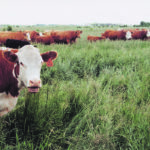
Rotational grazing’s effect on carbon storage studied
Researchers want to know if the use of multiple paddocks has an impact on how pastures manage greenhouse gases
Learning how different grazing systems affect greenhouse gas uptake and carbon storage is important as carbon offsets are developed. A wide ranging five-year study examined how adaptive multi-paddock grazing (AMP), also known as intensive rotational grazing, compared to neighbouring conventional grazing in terms of carbon storage and greenhouse gas fluxes. Dr. Ed Bork from the […] Read more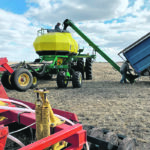
Sask. budget boosts ag spending
Saskatchewan’s second pandemic budget contains extra money for agriculture. Finance minister Donna Harpauer delivered the 2021-22 budget April 6. It includes agriculture estimates of $386.97 million, up from last year’s estimate of $363.9 million. The bulk of that increase is for business risk management spending, which is up about $20 million to cover off the […] Read more
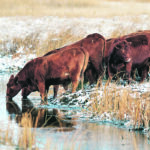
Prairies help break AgriStability logjam
Three provinces agree to remove reference margin limit but refuse to budge on changing compensation rate
UPDATED – April 1, 2021 – 1545 CST – This story has been updated from the printed version in our April 1 edition to correct some inaccuracies. Canadian farmers will have access to only some of the proposed $170 million in new AgriStability money after agriculture ministers reached a partial deal last week. The ministers […] Read more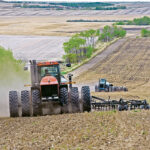
Sask. makes vow on farmers’ carbon
Saskatchewan premier Scott Moe says his government is making every effort to ensure the province’s farmers will be recognized for all the carbon they store. The province is developing offset protocols for the crops and livestock sectors. The plan is to have offsets in place for 2022 so farmers can participate in carbon markets. During […] Read more

Carbon tax ruling disappoints farm groups
Western Canadian farm organizations say last week’s Supreme Court of Canada decision that upheld Ottawa’s right to impose a carbon tax is disappointing. Many supported the efforts of the Saskatchewan, Alberta and Ontario governments to fight the tax, saying farmers have no way to pass on the extra costs, after the federal government implemented the […] Read more

New program explores how carbon offsets can work on grasslands
A new two-year pilot program will examine how ranchers can generate carbon offsets in and revenue from conserved grasslands. To generate carbon offsets, landowners will need to protect their grassland, but they have a choice of an easement, conservation agreement, servitude or covenant. The Retaining Canada’s Grasslands Using Carbon Offset Markets project was developed by […] Read more
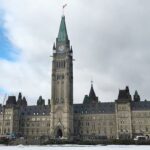
Reference margin limit removed from AgriStability
The provinces and Ottawa have finally agreed to partial changes to AgriStability. During a federal-provincial-territorial meeting March 25, they agreed to remove the reference margin limit from the program, retroactively for 2020 and continuing through to March 31, 2023. However, none of the prairie provinces was willing to also pay the cost of increasing the […] Read more




